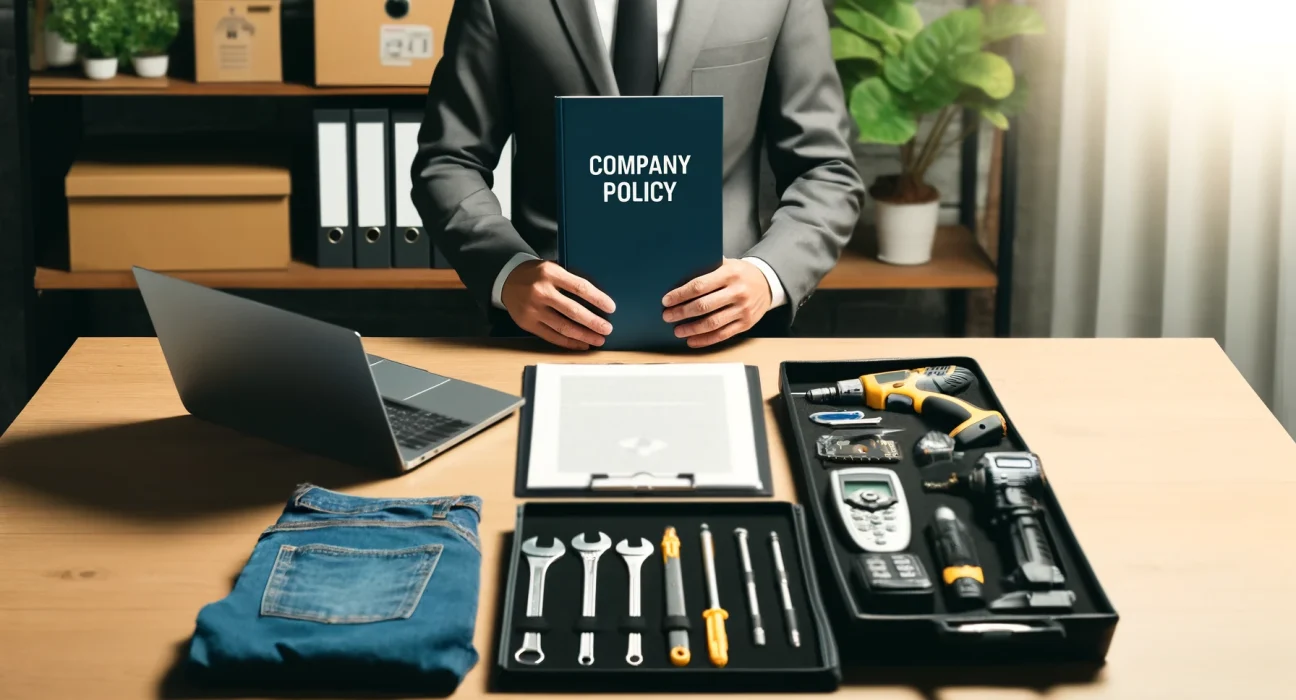Company gear includes items such as uniforms, tools, or electronic devices provided by employers for work purposes. Understanding how long can I have company gear before selling it depends on your company’s policies and legal requirements. Missteps in this area can lead to disputes, so it’s important to know the rules.
Employers provide gear for professional use, not personal ownership in many cases. Selling such items without permission can result in consequences. Knowing how long can I have company gear before selling it helps you handle this situation responsibly and avoid potential issues.
Company Policies
Every company has its own policies regarding gear provided to employees. Some require you to return the items when you leave the job, while others allow you to keep certain items permanently. For example, uniforms might be yours to keep, but company laptops must usually be returned.
Bullet Points Example:
- Return Policies: Items like tools, laptops, or ID cards are often reclaimable.
- Ownership Transfer: Some companies give employees discounted or outdated gear after specific periods.
- Violation Risks: Selling gear still considered company property could result in penalties.
Understanding these policies starts with checking your employee handbook or contacting HR. Ignoring these rules can lead to misunderstandings or even legal issues.
Ownership of the Gear
Before selling any company gear, confirm whether it is truly yours. Ownership can vary: some items might be gifted to you (like branded merchandise), while others could still belong to the company.
For example, gear you purchased through employee discount programs might be yours. However, loaned equipment, such as tools or electronics, generally remains company property and must be returned. Misinterpreting ownership could lead to legal complications.
(Ownership Types):
| Type of Gear | Ownership Status | Action |
| Loaned (tools, laptops) | Company property | Return after use/employment |
| Purchased (discount program) | Employee property | Can be sold |
| Gifted items (merchandise) | Employee property | Can be sold |
Legal Considerations
Legal requirements surrounding company gear can vary by region and job type. Selling items that belong to the company without proper permission could result in legal claims, such as accusations of theft or misuse.
Some jurisdictions may require companies to clearly mark their property, while others hold employees responsible for clarifying ownership. If you’re unsure about your rights, consult local laws or a legal professional for guidance.
Additionally, make sure no outstanding obligations or debts are tied to the gear before selling it. For instance, if you owe the company for lost or damaged items, selling them prematurely can worsen the issue.
Suggested Waiting Period
If there are no clear policies or legal requirements, waiting 6 months to 1 year after leaving the company is a common practice. This provides a buffer period to ensure all obligations are settled and reduces the chance of disputes.
During this time, you can confirm ownership status with your employer and resolve any pending concerns. While waiting may not be necessary in every situation, it’s a safer approach if ownership is unclear.
Steps to Take Before Selling
Before putting any company gear up for sale, follow these steps to avoid trouble:
- Verify Ownership: Double-check with HR or review your employment agreement.
- Clear Obligations: Settle any debts or responsibilities related to the gear.
- Document Origin: Keep records or receipts showing how you obtained the gear.
By taking these precautions, you can sell the items confidently, knowing you’re acting within your rights. Always prioritize clear communication and transparency to avoid unnecessary risks.
Insurance and Liability
Insurance plays a vital role when handling company gear. If you are responsible for valuable equipment like laptops or tools, check if the company’s insurance covers damage or loss. In some cases, you may need to take out personal insurance to protect yourself against liabilities.
If you plan to sell gear after confirming ownership, ensure it is not tied to any active insurance claims or coverage. Selling insured items without proper documentation could lead to disputes. Always clarify your obligations with the company or your insurer before proceeding.
Last Words
Deciding how long you can have company gear before selling it depends on understanding your company’s policies and confirming ownership. Always prioritize checking your employment agreement, company handbook, or directly consulting HR for clarity. If you are allowed to keep the gear, ensure there are no restrictions on selling it.
When in doubt, waiting for a reasonable period, such as 6 months to a year after employment ends, can be a cautious and responsible approach. Avoid rushing into selling items without proper documentation or verification.
Ultimately, clear communication and adherence to policies are key to resolving questions about how long you can have company gear before selling it, ensuring you stay compliant with both company rules and legal standards.
FAQs
Can I sell company gear after leaving my job?
It depends on whether the gear is considered your property or the company’s. Check your employment agreement or confirm with HR. If the gear still belongs to the company, selling it could lead to legal or financial consequences.
How do I know if I own the company gear?
Ownership is typically determined by the company’s policies. Items explicitly gifted to you or purchased through discount programs are usually yours. Loaned or rented items, like laptops or tools, often remain company property.
Is there a standard waiting period before selling company gear?
There isn’t an official standard, but waiting 6 months to 1 year after leaving the job is a cautious approach. This buffer period ensures all obligations are resolved, and ownership is clarified.
What should I do if I’m unsure about selling company gear?
If you’re uncertain, consult your employment agreement, company handbook, or HR department. It’s also wise to document any proof of ownership, like receipts or gift confirmations.
What are the risks of selling company gear without permission?
Selling company gear without proper ownership could result in legal claims, such as accusations of theft or misuse. It may also damage your professional reputation, especially if the company decides to pursue the matter.
Article Recommendations
Insurance for Air b and b: A Complete Guide for Hosts and Guests
Investiit.com Tips: A Beginner’s Guide to Smart Investing
How Much is Insurance for a House Crawfordville FL: A Complete Guide
TraceLoans: Simplifying Your Loan Journey
Everything You Need to Know About TraceLoans.com Bad Credit Services










